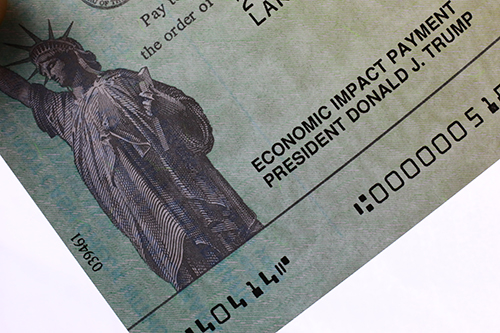Cornyn’s American Citizen Coronavirus Relief Act would Secure up to $508M for US Citizens and LPRs in Texas
 An estimated 291,000 US citizens and lawful permanent residents* (LPRs) living in Texas were ineligible for federal economic impact payments because of a “marriage penalty.” Under the CARES Act, any person with a social security number who filed their 2018 federal taxes jointly with an unauthorized immigrant spouse who used an individual tax identification number (ITIN) instead of a SSN was denied the $1,200 and $500 per US citizen child that US citizens making under $75k personally or $150k jointly received.
An estimated 291,000 US citizens and lawful permanent residents* (LPRs) living in Texas were ineligible for federal economic impact payments because of a “marriage penalty.” Under the CARES Act, any person with a social security number who filed their 2018 federal taxes jointly with an unauthorized immigrant spouse who used an individual tax identification number (ITIN) instead of a SSN was denied the $1,200 and $500 per US citizen child that US citizens making under $75k personally or $150k jointly received.
Texas Republican Senator John Cornyn has co-sponsored a bill called the American Citizen Coronavirus Relief Act, which would retroactively send stimulus payments authorized by the CARES Act to US citizens and LPRs who did not originally qualify for economic impact payments because they filed taxes jointly in 2018 with an unauthorized immigrant.
This marriage penalty has adversely impacted Texas significantly more than any other state besides California. Under Cornyn’s bill, an estimated 291,000 citizens and LPRs in Texas could receive retroactive payments. Those who filed jointly would receive $1200 and an additional $500 per citizen or LPR child they have. There are an estimated 318,000 such children. If the married couples all filed jointly, that would add up to $508.2 million of potential spending power for these families living in Texas that missed out on the first round of economic impact payments.
The total potential stimulus for Texans covered under Cornyn’s bill is even larger when including any DACA recipients, TPS holders and work authorized asylum seekers (whose applications have been pending for longer than 6-months) in Texas that filed taxes jointly with an unauthorized immigrant spouse.
* A lawful permanent resident is a non-citizen who has been granted authorization to live and work in the United States on a permanent basis. As proof of that status, a person is granted a permanent resident card, commonly called a "green card."








